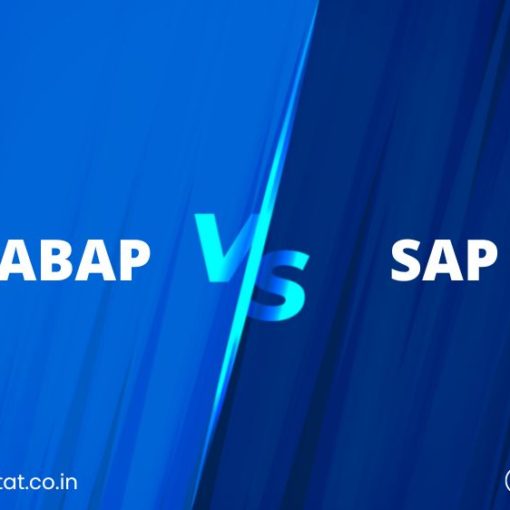In the high-stakes game of customer relationship management (CRM), two titans stand out – Salesforce vs SAP. Both are industry leaders, offering robust functionalities to manage customer interactions, streamline sales processes, and boost overall customer satisfaction. But with distinct strengths and target audiences, selecting the right champion for your specific needs can be a daunting task. Let’s delve into the core features Salesforce vs SAP, ideal user profiles, and implementation considerations of Salesforce and SAP to guide you towards your CRM champion.

Salesforce: The Agile and User-Friendly CRM King(Salesforce vs SAP)
Salesforce rose to prominence as a cloud-based CRM solution, pioneering the Software-as-a-Service (SaaS) model. This translates to:
- Rapid Deployment: Salesforce boasts a user-friendly interface and requires minimal IT intervention for setup. Businesses can be up and running quickly, maximizing their return on investment (ROI).
- Scalability and Affordability: Salesforce offers various subscription tiers catering to businesses of all sizes. The cloud-based model eliminates the need for upfront infrastructure costs, making it an attractive option for startups and growing companies.
- Extensive Customization: Salesforce provides a robust AppExchange marketplace with a plethora of pre-built applications and integrations. This allows businesses to tailor the CRM to their specific industry needs and workflows.
- Focus on Sales and Marketing Automation: Salesforce shines in sales team automation, lead nurturing, and marketing campaign management. Its intuitive interface empowers sales reps to close deals faster and nurture leads efficiently.
Ideal Users: Salesforce is a perfect fit for small and medium-sized businesses (SMBs), sales-driven organizations, and companies seeking a user-friendly and rapidly deployable CRM solution.
SAP: The Enterprise Powerhouse with Unmatched Depth
SAP, on the other hand, has a long-standing reputation as an on-premise enterprise resource planning (ERP) giant. Their CRM offering, SAP C/4HANA, builds upon this heritage:
- Comprehensive Functionality: SAP C/4HANA offers a broad spectrum of functionalities beyond core CRM, encompassing marketing, sales, customer service, and commerce.
- Deep Integration with SAP Landscape: For businesses heavily invested in the SAP ecosystem, C/4HANA integrates seamlessly with other SAP solutions like ERP and supply chain management (SCM). This fosters a unified data view and streamlines business processes.
- Scalability for Large Enterprises: SAP C/4HANA is built to handle the complex needs of large organizations with vast customer bases and intricate data requirements.
- Industry-Specific Solutions: SAP offers industry-specific CRM solutions tailored to verticals like manufacturing, healthcare, and professional services. This ensures a high degree of customization and caters to specific industry needs.
Ideal Users: SAP C/4HANA is ideal for large enterprises, organizations already invested in the SAP ecosystem, and companies requiring industry-specific functionalities and deep integration with other SAP solutions.
Choosing Your CRM Champion: A Balancing Act
The battle between Salesforce and SAP isn’t a one-size-fits-all scenario. The optimal choice hinges on several key factors:
- Company Size and Needs: For SMBs and sales-focused businesses, Salesforce’s agility and affordability might be more appealing. Large enterprises with complex needs and existing SAP investments might lean towards SAP C/4HANA.
- Industry Specificity: If your industry has specific CRM requirements, explore industry-specific solutions offered by both platforms.
- Budget and IT Resources: Salesforce’s cloud-based model typically requires lower upfront costs and less IT expertise compared to SAP’s on-premise deployment.
- Data Integration Needs: Consider how seamlessly your CRM needs to integrate with existing systems. If you’re heavily invested in the SAP ecosystem, C/4HANA might be the more natural choice.
The Final Round: Beyond Features
While features are crucial, don’t overlook the long-term implications. Here are some additional considerations:
- Scalability: Can the CRM solution adapt to your future growth plans?
- Ease of Use: User adoption is key. Evaluate the platform’s usability and training resources.
- Vendor Support: Reliable vendor support is vital for ongoing maintenance and troubleshooting.
Conclusion
Salesforce and SAP are both CRM powerhouses, each catering to distinct needs. By carefully evaluating your company size, industry requirements, budget, and future roadmap, you can identify the champion that empowers your customer relationship management strategy and propels your business towards success. Remember, the ideal CRM isn’t just about features; it’s about finding the solution that aligns seamlessly with your unique business landscape.




